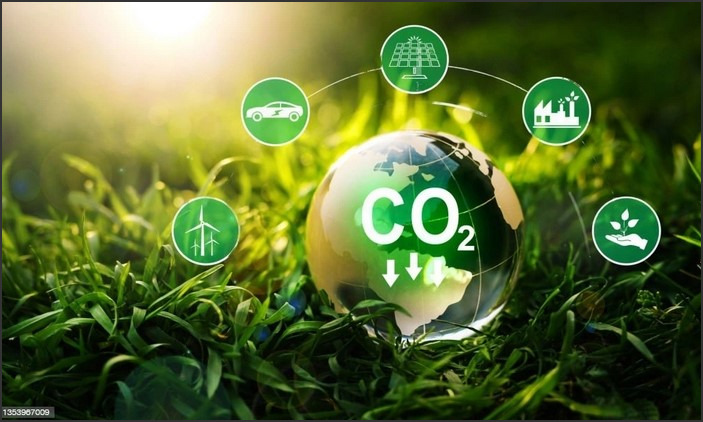Water Recycler: Sustainable Solutions for Resource Management

Source : https://oizom.com
Water Recycler is an innovative and sustainable solution for resource management. It is a system that recycles wastewater and uses it for various purposes, such as irrigation, industrial processes, and even drinking water. The system is designed to reduce water consumption and waste, while also providing a reliable source of clean water. It is an efficient and cost-effective way to manage water resources, and can be used in both urban and rural areas. Water Recycler is an important tool for sustainable development, and can help to reduce the environmental impact of water use.
How Water Recyclers are Revolutionizing Sustainable Water Management
Water recycling is revolutionizing sustainable water management, offering a viable solution to the global water crisis. By reusing wastewater, water recyclers are able to reduce the amount of water that is lost to evaporation and infiltration, while also reducing the amount of water that is taken from natural sources. This technology is becoming increasingly important as the world’s population continues to grow and the demand for water increases.
Water recyclers are able to capture and treat wastewater, making it safe for reuse. This process involves removing contaminants, such as bacteria, viruses, and chemicals, from the wastewater. The treated water can then be used for a variety of purposes, including irrigation, industrial processes, and even drinking water. This technology is becoming increasingly popular as it is more cost-effective than traditional water treatment methods.
Water recyclers also offer a number of environmental benefits. By reducing the amount of water that is taken from natural sources, water recyclers help to preserve the environment and reduce the strain on natural resources. Additionally, by reusing wastewater, water recyclers reduce the amount of wastewater that is discharged into rivers and oceans, helping to protect aquatic ecosystems.
Water recyclers are also helping to reduce the amount of energy that is used in water treatment. By reusing wastewater, water recyclers are able to reduce the amount of energy that is required to treat and transport water. This helps to reduce the amount of greenhouse gases that are released into the atmosphere, helping to combat climate change.
Water recyclers are revolutionizing sustainable water management, offering a viable solution to the global water crisis. By reducing the amount of water that is taken from natural sources, reducing the amount of wastewater that is discharged into rivers and oceans, and reducing the amount of energy that is used in water treatment, water recyclers are helping to protect the environment and preserve natural resources. This technology is becoming increasingly popular as it is more cost-effective than traditional water treatment methods.
Exploring the Benefits of Water Recycling for Resource Conservation
Water recycling is an important resource conservation strategy that has the potential to reduce the amount of water used in many industries and activities. By recycling water, it can be reused multiple times, reducing the need to draw from natural sources. This can help to conserve water resources, reduce the amount of wastewater produced, and reduce the amount of energy needed to treat and transport water.
The benefits of water recycling are numerous. First, it can reduce the amount of water used in many industries and activities. This can help to conserve water resources, reduce the amount of wastewater produced, and reduce the amount of energy needed to treat and transport water. Additionally, water recycling can reduce the amount of pollutants entering natural water sources, as recycled water is often treated to remove contaminants. This can help to improve water quality and reduce the risk of water-borne diseases.
Water recycling can also help to reduce the cost of water treatment and transportation. By reusing water multiple times, the need for new water sources is reduced, which can help to reduce the cost of water treatment and transportation. Additionally, water recycling can help to reduce the amount of energy needed to treat and transport water, as recycled water is often treated to remove contaminants. This can help to reduce energy costs associated with water treatment and transportation.
Finally, water recycling can help to reduce the amount of wastewater produced. By reusing water multiple times, the need for new water sources is reduced, which can help to reduce the amount of wastewater produced. This can help to reduce the amount of pollutants entering natural water sources, as recycled water is often treated to remove contaminants.
In conclusion, water recycling is an important resource conservation strategy that has the potential to reduce the amount of water used in many industries and activities. By recycling water, it can be reused multiple times, reducing the need for new water sources and helping to conserve water resources. Additionally, water recycling can reduce the amount of pollutants entering natural water sources, reduce the cost of water treatment and transportation, and reduce the amount of energy needed to treat and transport water. As such, water recycling is an important resource conservation strategy that can help to improve water quality and reduce the risk of water-borne diseases.Water Recycler is an innovative and sustainable solution for resource management that can help reduce water waste and conserve resources. It is an effective way to reduce water consumption and help conserve water resources. It is also an efficient and cost-effective way to manage water resources. Water Recycler is an important tool for sustainable resource management and can help reduce water waste and conserve resources.
